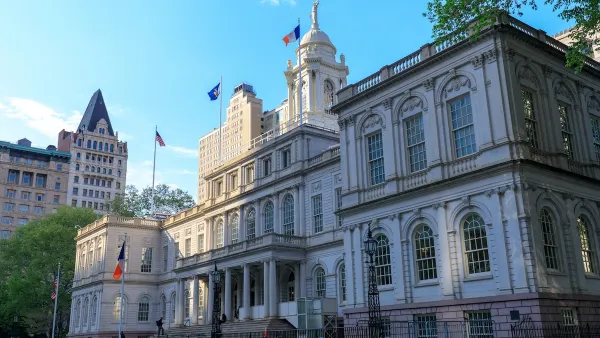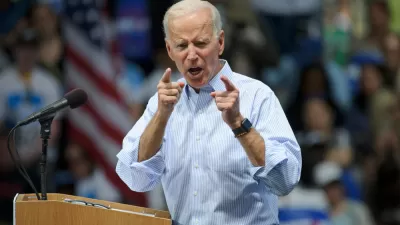You have heard it, or seen it, before. A developer comes in for a presubmittal meeting, and he is excited. He has the best project your city has ever seen, and, when all is said and done, he insists that the city will never be the same. And he’s right.
You have heard it, or seen it, before. A developer comes in for a presubmittal meeting, and he is excited. He has the best project your city has ever seen, and, when all is said and done, he insists that the city will never be the same. And he's right. The demolition landfill he wants to get permitted in a residential neighborhood is, of course, an abomination, but, according to him it'll be "an improvement on all those crappy houses", it'll have lots of trees for buffering (if he had his way, spaced about 50 feet apart), and, above all, it will just be "real nice".
"Real nice" is Southern developer-ese for "I am in love with my project and believe every other rational being should be as well". It is heard in some form or another in planning departments across the United States, and, when it is, public sector planners know they are in for a good time. If good can be defined as "relations with someone who, because he has never developed anything and for other reasons beyond the comprehension of mortal men, does not understand why his portable drive-through liquor store concept is not viewed as the answer to all the problems of the City". "But it has wheels I can move it to wherever needs the most alcohol that day," he will insist. When confronted with citizen resistance, he will offer to turn off his external loudspeakers (playing an endless loop of "Send in the Clowns") at midnight, instead of 2am as originally planned.
That is of course a gross exaggeration, but I think it is reflective of what public sector planners see from time to time. For every savvy developer who understands the necessity of compromise and why it is important to engage all of the actors in the planning process, there is a recalcitrant one who cannot see past the end of his own property line to understand how his project is part of a larger whole, and why everyone around him cringes when he says "don't worry it'll be real nice".

Maui's Vacation Rental Debate Turns Ugly
Verbal attacks, misinformation campaigns and fistfights plague a high-stakes debate to convert thousands of vacation rentals into long-term housing.

Planetizen Federal Action Tracker
A weekly monitor of how Trump’s orders and actions are impacting planners and planning in America.

San Francisco Suspends Traffic Calming Amidst Record Deaths
Citing “a challenging fiscal landscape,” the city will cease the program on the heels of 42 traffic deaths, including 24 pedestrians.

Defunct Pittsburgh Power Plant to Become Residential Tower
A decommissioned steam heat plant will be redeveloped into almost 100 affordable housing units.

Trump Prompts Restructuring of Transportation Research Board in “Unprecedented Overreach”
The TRB has eliminated more than half of its committees including those focused on climate, equity, and cities.

Amtrak Rolls Out New Orleans to Alabama “Mardi Gras” Train
The new service will operate morning and evening departures between Mobile and New Orleans.
Urban Design for Planners 1: Software Tools
This six-course series explores essential urban design concepts using open source software and equips planners with the tools they need to participate fully in the urban design process.
Planning for Universal Design
Learn the tools for implementing Universal Design in planning regulations.
Heyer Gruel & Associates PA
JM Goldson LLC
Custer County Colorado
City of Camden Redevelopment Agency
City of Astoria
Transportation Research & Education Center (TREC) at Portland State University
Jefferson Parish Government
Camden Redevelopment Agency
City of Claremont






























